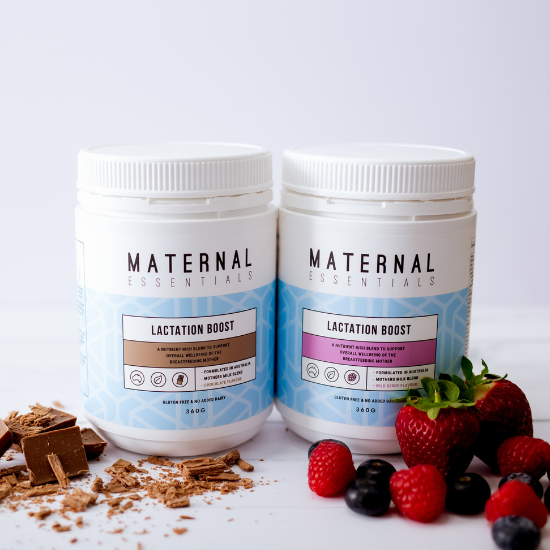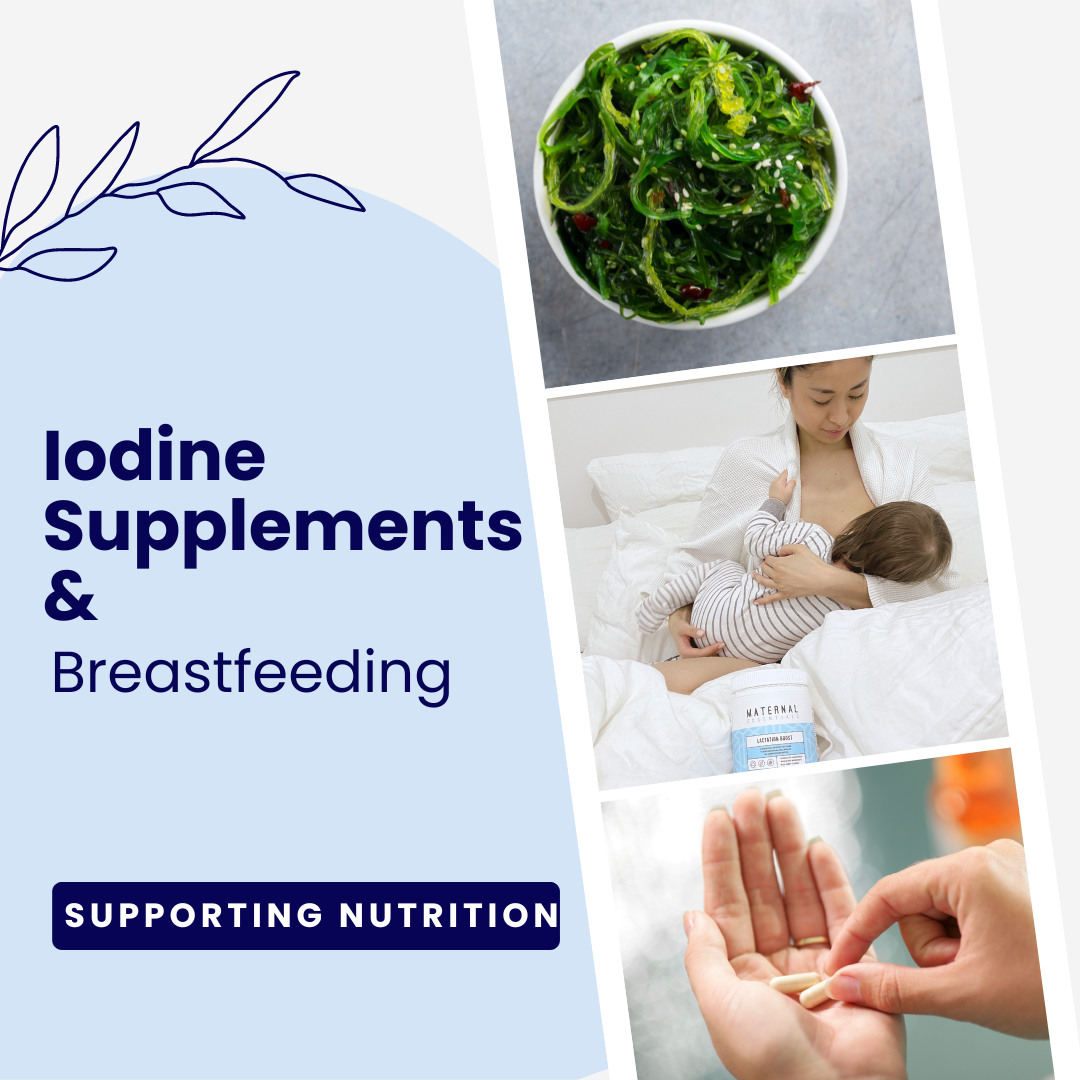The NHMRC recommends that all breastfeeding mums take an Iodine Supplement of 150mcg daily.
You may be wondering- Do I really need to take an iodine supplement while breastfeeding?
The answer is YES! Below, our Clinical Nutritionist Meg explains why iodine is so essential for breastfeeding mums and their babies.
Why is Iodine Important while Breastfeeding?
Iodine is an essential nutrient to support growth and brain development in your breastfed baby. Your dietary intake of iodine from foods like seafood, seaweed and dairy products directly influences the concentration of iodine present in your breastmilk.
Your breastfed baby relies on the iodine in your breastmilk to support their brain development and growth, prior to introduction of solid foods around 6 months. Research shows that breastfed babies who drink iodine rich milk, have improved cognitive function, memory and even weight to height ratios. How amazing is that!
Iodine also supports postnatal thyroid health, like hypothyroidism. Hypothyroidism can actually impact your milk supply, reducing your ability to produce while breastfeeding. Iodine is one nutrient, alongside zinc and selenium that works to improve thyroid hormone production, optimising your postnatal thyroid function.
Why are Most Breastfeeding Mums Iodine Deficient?
Although Australia implements widespread iodine fortification in food products like flour, bread and dairy, breastfeeding mums are still not reaching the dietary intake of iodine.
Iodine is readily available in foods, like dairy products. However, it is common for breastfeeding mums to eliminate dairy products from their diet due to food intolerances or Cows Milk Protein Allergy in their baby. This means, that dietary intake of iodine will be even more reduced.

What is the Recommended Dietary Intake of Iodine while Breastfeeding?
The current recommended dietary intake for iodine during lactation is 270 µg daily. You can achieve this by incorporating an iodine supplement or postnatal supplement that contains iodine, while also regularly including dietary sources of iodine.
What are the Best Food Sources of Iodine?
The best food sources of iodine are seafood and seaweed, followed by dairy products. If you don't like seafood or have eliminated dairy from your diet, it is essential that you take an iodine supplement everyday for the entirety of your breastfeeding journey. Here is a list of the amount of iodine in mcg, per serve of food:
10g dried seaweed: 232 mcg
85g smoked oysters: 93 mcg
85g prawns: 13 mcg
85g sardines: 30 mcg
1 cup whole milk: 85 mcg
1 cup natural yoghurt: 87 mcg

Important information to know before supplementing with Iodine
It is important to remember that the total recommended intake of iodine while breastfeeding is 270 which should be coming from both food sources and a supplement (if required). If you are taking multiple supplements that all contain iodine and also consume dietary sources of iodine regularly, you may actually be getting too much iodine! Although Iodine is necessary for postnatal thyroid health, too much can interfere with thyroid function leading to conditions like hashimotos, hyperthyroidism and postpartum thyroiditis.
Your individual needs and current dietary intake of iodine will influence which iodine supplement you should take. Prior to supplementing with iodine make sure to check your postnatal thyroid function with your health care provider. If you already have a pre-exisiting thyroid condition, talk to your GP first before choosing a supplement.


